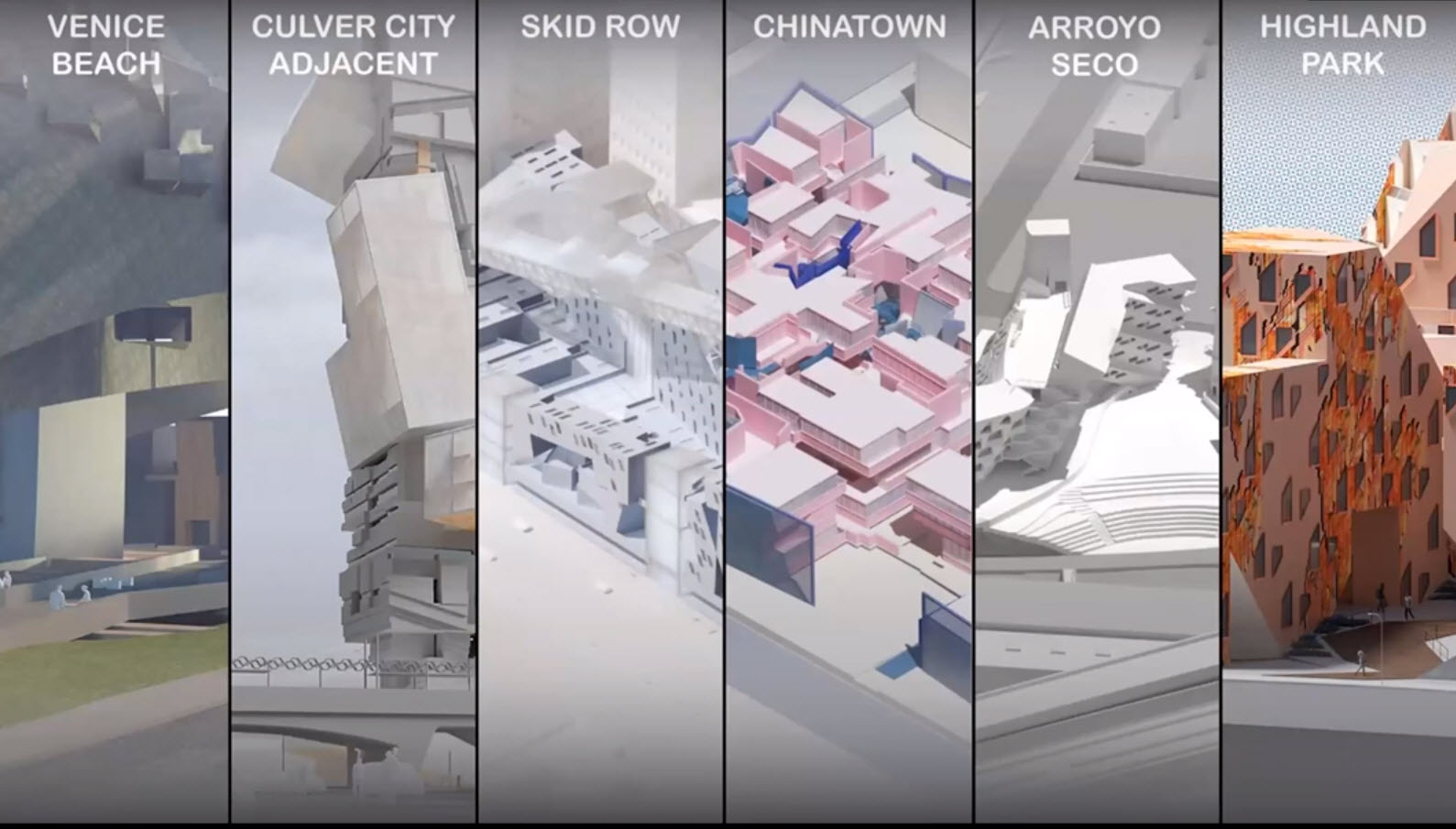Pando Days ’21 Premiere Recap
Pando Days ‘21 premiere week held back-to-back events showcasing eleven projects from ten Southland colleges and universities focused on building County sustainability. Schools dedicated full courses, studios, or labs over the fall term and delivered results over four days in a series of online events beginning December 6. More than 150 people attended.
This year’s Pando Days brought to life some amazing projects across four categories of sustainability: Transportation, Shelter, Community, and Open Call/Food. School teams were given 10 minutes apiece for their premiere week presentations, followed by 5 minutes of Q&A with a member of the CSO (Chief Sustainability Officer) Taskforce.
Pando Days projects bring big ideas down to Earth for practical real-world impact. A panel of distinguished judges is assessing them now according to four criteria:
● Effectiveness in meeting LA County sustainability goals, 25%
● Responsiveness to the needs of community stakeholders, 25%
● Innovation and creativity, 25%
● Implementation strategy and practical viability, 25%
Winners will be announced at the Finale, Sunday, Jan. 16, 11:00 a.m.
So let’s see what happened…
LA County Category: Transportation
MONDAY brought teams together that had focused on reimagining transportation in the City of Cudahy. The City has a population of 26,000 people and is without a single EV charging station. It’s a situation that Los Angeles County, represented by the Internal Services Department as Pando Days category partner, is eager to address. The fundamental question, however, is this: How do you best engage with an underserved and under-resourced community on matters of EVs?
Responses ran the gamut at Monday’s premiere, with project submissions from three collegiate teams.
Mount Saint Mary’s University focused on Cudahy’s air quality, envisioning portable air sensors in student backpacks to collect a broader range of on-the-ground data than what’s available to date (nothing like an air quality monitoring device in your kid’s backpack to motivate parents to do the right thing!).
Otis College of Design fashioned an EV marketing campaign for local residents designed around research-based profiles of potential buyers.
Cal State Long Beach focused its project around community engagement and education.
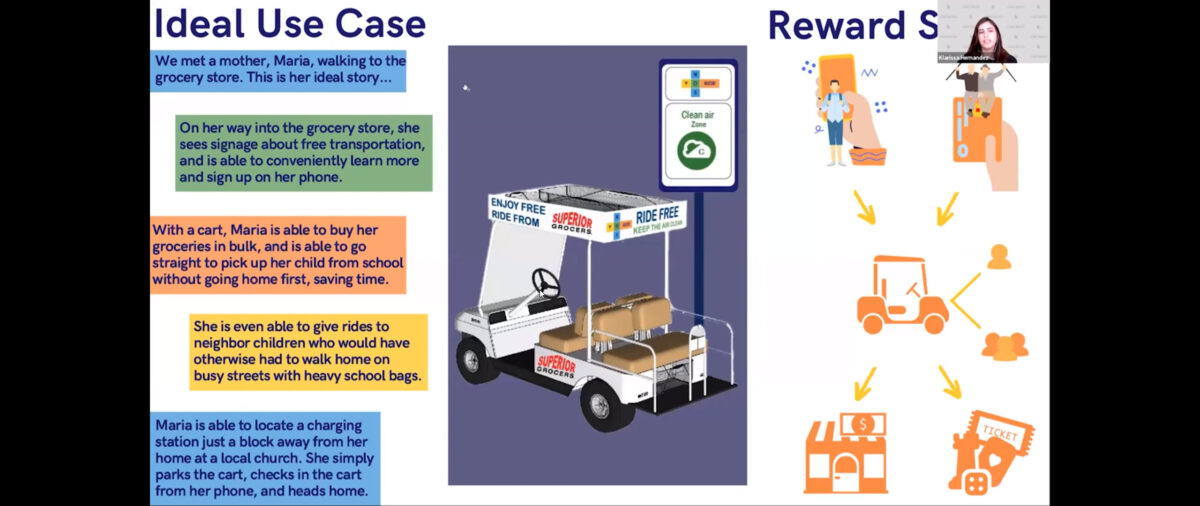
City of LA Category: Shelter
TUESDAY brought three teams together around the challenge of shelter, focused on LA’s Skid Row. LA Deputy Mayor for Homelessness Initiatives, Che Ramirez, served as category partner. All three teams responding to the category challenge were Pando Days veterans. Two of them picked up funding last year for their projects.
SCI-Arc’s project (see image above) involved a total of some 68 students and challenged ideas on the housing crisis in general – including Skid Row but taking in a geographic scope well beyond it.
USC, with some 36 students involved, innovated five different and affordable models for turning Skid Row’s barren and unkempt sidewalks into areas of shade and respite.
Woodbury reimagined ancient cooling systems from Egypt, utilizing clay molds and evaporation techniques, to meet Skid Row residents’ immediate needs.
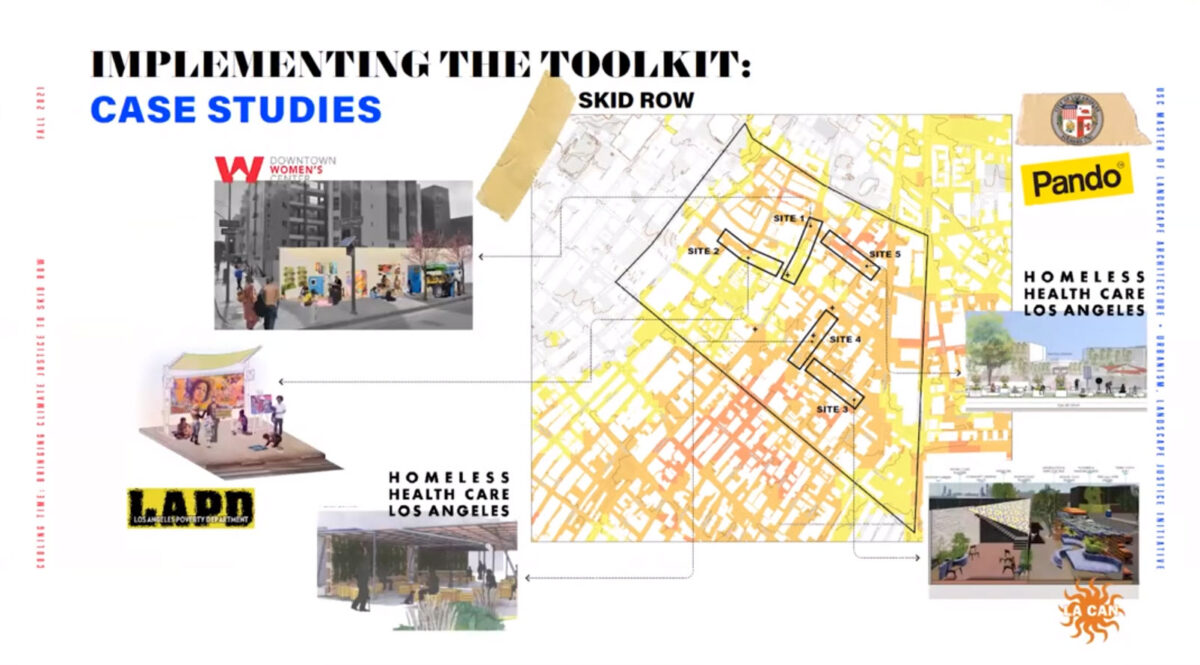
Pico Union Category: Community
WEDNESDAY’s presentations were all about strengthening community in a distressed area of South LA by developing a “pocket park” for a 2,400 SF piece of blocked off roadway in the Pico Union district. It’s a tough area: the road’s yellow dividing line is also the line between rival gangs. The Pando Days challenge: create a community oasis over territory that should be considered neutral ground.
The teams worked alongside Pico Union community leaders and category partner Gloria Farias to create a vision of sustainability and justice that responds to immediate local needs. If successful, the projects will not only help revitalize this specific area but inspire similar approaches across LA. To meet climate targets, we were told that one such park in LA per week must be created over the coming years.
Cal Arts focused on reenvisioning the space for art, enrichment programs, and play.
Otis College of Design (they mounted two separate Pando Days projects this year) ambitiously designed blueprints for both the physical park and community interaction.
LA Trade Tech’s team pulled back for a broad view and asked, how might we design a “kit of parts” that gives residents the chance to create a park of their own design using modular components? Such a kit could help LA meet the demand for accelerated park development.
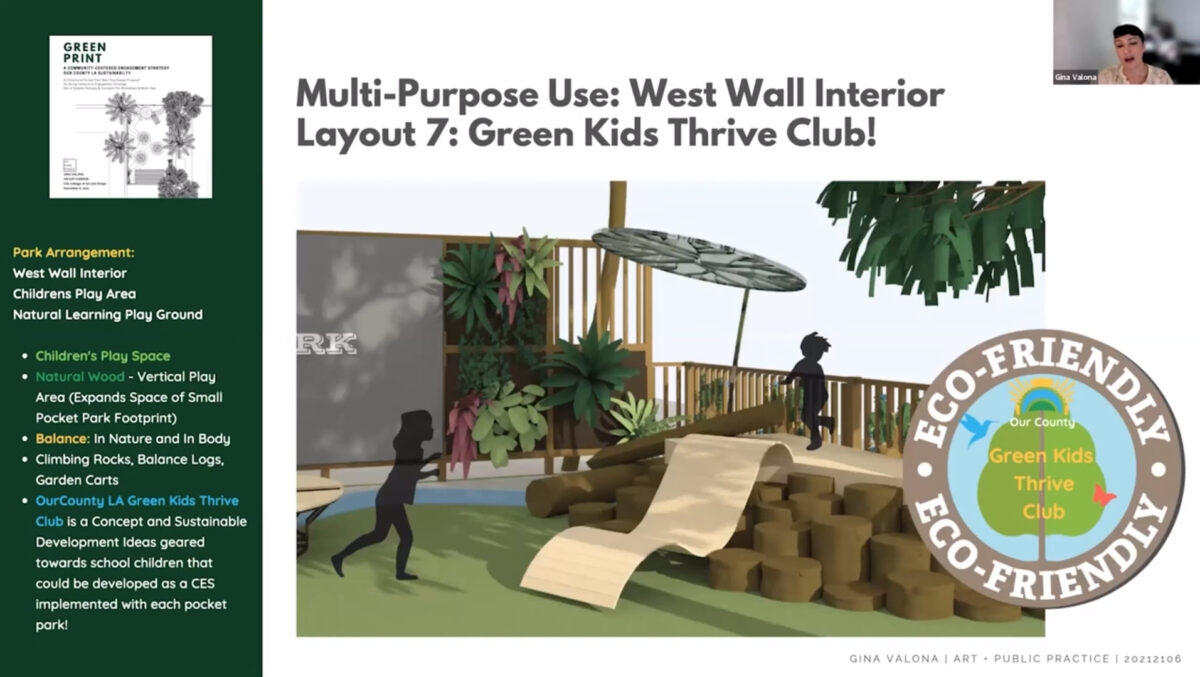
CSO Category: Open Call / Food
THURSDAY brought the last of the Pando Days teams together around the issue of food security. The category was organized under “Open Call,” which gave schools the opportunity to create a project of their choosing that responded to any of the goals in the County’s sustainability plan. The CSO Taskforce served as category partner. By happenstance, both schools focused the challenge on food.
The team from Cal Poly Pomona approached the category challenge through data, with a project that sets out to acquire new data types, aggregate existing sources, and apply different methods of information visualization to help with knowledge management and interpretation.
Cal State Northridge also focused on data aggregation and information visualization, but for more of a consumer-oriented model. The app they created gives communities access to the information they need to locate resources, find available food and identify the best geographical locations for gardens, food banks, and other options for food-related community support and outreach.
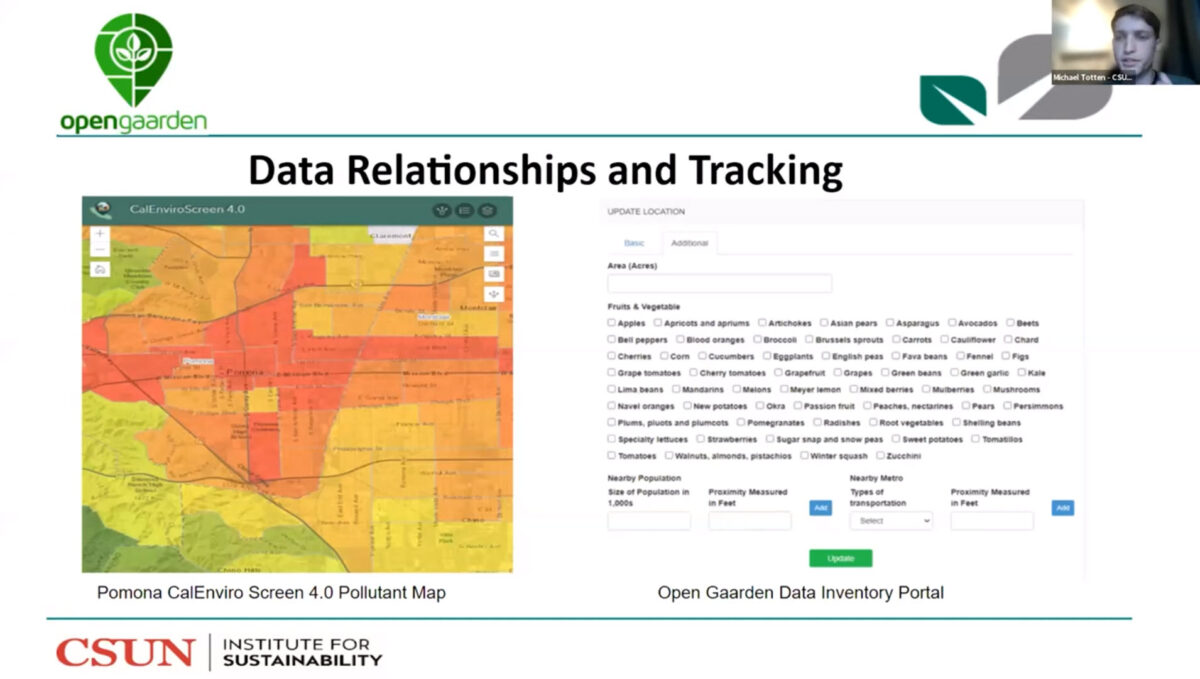
And, believe it or not, there’s more!
On the Pando Days 21’ webpage, you can see the project materials that the schools compiled to support their work. Here you’ll find a video recording of all category premiere presentations. Then, click through to any individual school to discover their full range of project deliverables: each school’s premiere presentation segment, presentation deck, background and supporting documents, and related research. It’s a treasure trove of ideas to inspire and enjoy!
And mark your calendars for the Pando Days January 16 Finale, where you’ll find out the winners from this year’s program and learn how community partners aim to help move selected projects forward.
Last year, multiple projects picked up funding from outside sources. There are whispers of some early interest from this year’s lineup.
Stay tuned to see what happens next. As Pando Days ‘21 is coming to a close, many of these projects are just beginning to realize their potential and there will be a second act!
